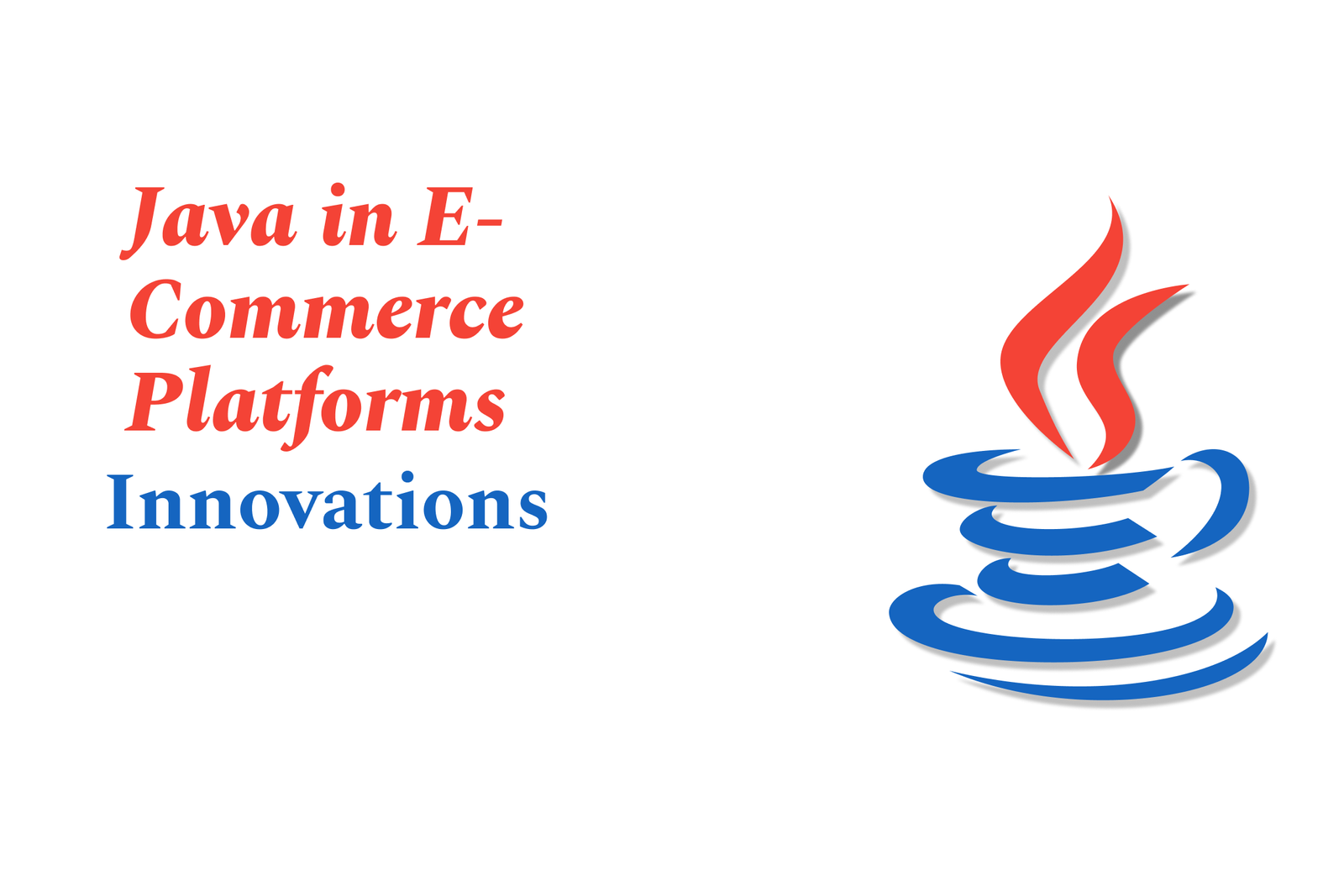Java in e-commerce platforms: Innovations
Java powers innovative e-commerce platforms by enabling scalable, secure, and high-performance applications. It integrates advanced technologies like cloud and containerization, supports real-time monitoring, enhances security with QR code solutions, and drives seamless, efficient online retail experiences.
Java in E Commerce Platforms: Innovations
1 ) Overview of Java's Role in E Commerce
Java has become a fundamental technology in the development of scalable, secure, and efficient e commerce platforms. Its robustness and versatility facilitate innovations that enhance user experience, operations, and business growth in online retail environments.
2 ) Integration with Advanced Technologies
Java supports seamless integration with emerging technologies such as cloud computing, hybrid and multi cloud environments, containerization (Docker, Kubernetes), and virtualization, enabling e commerce platforms to be highly adaptable and scalable.
3 ) Application Performance Management (APM)
Java based APM tools help monitor and optimize the performance of e commerce applications. This includes JVM monitoring, web container management, and transaction tracking, ensuring high availability and responsiveness of online stores.
4 ) End to End Monitoring and User Experience
Java enables comprehensive monitoring solutions that provide real time analytics on application and infrastructure performance. This supports delivering superior digital workspace experiences and proactive problem resolution, crucial for customer satisfaction in e commerce.
5 ) Security Enhancements
Java’s security features are pivotal in safeguarding e commerce transactions. The use of secure QR codes and tamper proof product authentication—facilitated through Java libraries like ZXing—helps prevent fraud and builds consumer trust.
6 ) Innovative Uses of Java Libraries
Java libraries such as ZXing are leveraged for multi format barcode processing in e commerce, enabling features like seamless mobile shopping, personalized marketing through QR codes, enhanced inventory tracking, and secure, fast mobile payments.
7 ) Scalability and Operational Efficiency
Java’s compatibility with IT operational tools aids in managing large scale e commerce platforms across multiple geographies and teams. This enhances the recruitment, supply chain, and customer support processes, improving overall business agility.
8 ) Future Ready Development
With continuous enhancements and integration capabilities, Java remains instrumental in modernizing e commerce platforms by adding functionality, improving UI/UX, and supporting cloud infrastructure innovations, thus future proofing online retail businesses.
https://justacademy.in/news-detail/java-and-ai:-how-the-language-is-evolving
https://justacademy.in/news-detail/why-swiftui-is-the-future-of-ios-development
https://justacademy.in/news-detail/will-flutter-replace-native-app-development?
https://justacademy.in/news-detail/how-ai-is-revolutionizing-react-native-app-development
https://justacademy.in/news-detail/android-offline-mode-improvements
Related Posts
In 2025, top Angular libraries offer modern, feature-rich components and tools for building dynamic web apps. From powerful data grids to low-code platforms like UI Bakery, these libraries enhance development speed, UI design, and scalability, making them essential for Angular developers.
Migrating from AngularJS to Angular 17 involves gradually upgrading your app by running both frameworks together using tools like ngUpgrade, rewriting components in TypeScript, and adopting Angular’s modern architecture to enhance performance, maintainability, and long-term support.
Angular state management tools help organize and handle app data efficiently, improving scalability and maintainability. Popular options include NgRx for robust, RxJS-based patterns, and newer Signal Store solutions that offer simpler, reactive approaches integrated tightly with Angular’s latest features.
RxJS in Angular empowers developers to manage asynchronous data streams with powerful operators like `forkJoin`, `combineLatest`, and `zip`. Mastering these key operators in 2025 is essential for building efficient, reactive applications that handle complex event sequences seamlessly.
Angular performance optimization in 2025 focuses on improving app speed and responsiveness by using techniques like OnPush change detection, lazy loading, efficient data caching, and AOT compilation. These practices reduce load times, enhance user experience, and ensure scalable, fast Angular applications.
In 2025, Angular remains preferred for large-scale, enterprise apps with its robust, all-in-one framework, while Vue attracts developers seeking simplicity and fast development for smaller projects. Both frameworks excel, with choice driven by project needs and team expertise.
Angular Signals are a new reactive primitive in Angular 16 that enable fine-grained, efficient change detection by automatically tracking dependencies and updating only affected parts of the UI. They simplify state management and boost app performance, revolutionizing Angular's reactivity model.
Angular interview questions to prepare in 2025 focus on core concepts like components, directives, data binding, routing, and dependency injection, along with TypeScript mastery and latest Angular features to ensure strong practical knowledge for building scalable, efficient web applications.
AngularJS reached its official end of support in January 2022, meaning no further updates or security patches. To ensure app security and performance, developers should consider migrating to modern Angular versions or seek third-party long-term support options if immediate migration isn’t possible.
The Angular Roadmap 2025 highlights upcoming features focused on improving developer experience and performance, including zoneless Angular, Signals integration, enhanced Forms, async data handling, improved HMR, and expanded Angular Material/CDK enhancements, driving modern, efficient web app development.










